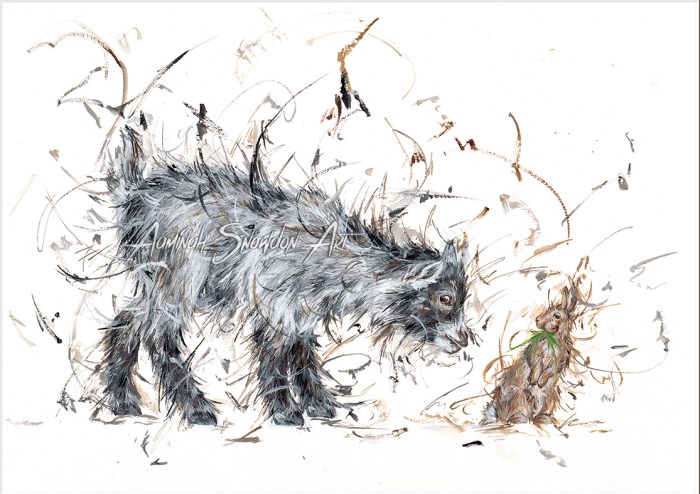Curious in the extreme crossword is a captivating journey into the realm of wordplay and mental agility. This engaging puzzle has enthralled crossword enthusiasts for decades, fostering a community of solvers who revel in the challenge of unraveling its intricate grids.
As we delve into the curious world of this crossword, we will explore its origins, synonyms, cultural significance, psychological aspects, and the intriguing benefits and drawbacks associated with this beloved pastime.
The crossword’s history is as rich as the puzzles themselves, with its roots tracing back to the early 20th century. Over time, the crossword has evolved into a global phenomenon, enjoyed by people from all walks of life. Its enduring popularity is a testament to the human fascination with language, logic, and the thrill of solving a good puzzle.
Origin and Etymology
The word “curious” originates from the Latin word “curiosus,” which means “inquisitive” or “eager to learn.” It entered the English language in the 14th century and has since evolved in meaning and usage.
Initially, “curious” primarily denoted a strong desire for knowledge and exploration. However, over time, it has acquired additional connotations, including:
Semantic Evolution
- Interest or intrigue:Expressing a keen interest in something or someone.
- Peculiar or unusual:Describing something that is out of the ordinary or unexpected.
- Suspicious or inquisitive:Implying a sense of caution or skepticism.
Synonyms and Antonyms

The term “curious” carries a wide range of meanings, and its synonyms and antonyms reflect the diverse connotations associated with it. Understanding these nuances is crucial for effective communication and accurate interpretation.
Synonyms
Synonyms of “curious” include:
- Inquisitive:Eager to learn or know more.
- Nosy:Excessively interested in the affairs of others.
- Prying:Intrusive or impertinent questioning.
- Interested:Having a desire to know or learn.
- Intrigued:Aroused by curiosity or fascination.
- Perplexed:Puzzled or confused.
- Odd:Unusual or strange.
- Strange:Unusual, unfamiliar, or bizarre.
- Peculiar:Uncommon, unusual, or eccentric.
- Weird:Strange, unusual, or unsettling.
Antonyms
Antonyms of “curious” include:
- Indifferent:Lacking interest or concern.
- Apathetic:Showing no interest or emotion.
- Unconcerned:Not worried or interested.
- Disinterested:Not having or showing interest.
- Uninterested:Not having or showing interest.
- Familiar:Well-known or accustomed to.
- Normal:Conforming to the usual or expected.
- Ordinary:Commonplace or unexceptional.
- Usual:Happening or occurring regularly.
- Typical:Representing the standard or usual type.
Table of Synonyms and Antonyms
The following table summarizes the synonyms and antonyms of “curious”:
| Synonyms | Antonyms |
|---|---|
| Inquisitive | Indifferent |
| Nosy | Apathetic |
| Prying | Unconcerned |
| Interested | Disinterested |
| Intrigued | Uninterested |
| Perplexed | Familiar |
| Odd | Normal |
| Strange | Ordinary |
| Peculiar | Usual |
| Weird | Typical |
Cultural and Historical Significance

Curiosity, an inherent human trait, has played a pivotal role in shaping civilizations and driving societal progress. Throughout history, individuals driven by an unquenchable thirst for knowledge have made groundbreaking discoveries, advanced scientific understanding, and inspired artistic masterpieces.
From the ancient Greek philosophers who questioned the nature of reality to the Renaissance explorers who ventured into uncharted territories, curiosity has been a driving force behind human endeavor. It has led to advancements in fields as diverse as astronomy, medicine, and technology, and has fueled the development of art, literature, and music.
Famous Figures
History is replete with examples of individuals whose curiosity has left an indelible mark on society. Leonardo da Vinci, the quintessential Renaissance man, was known for his insatiable curiosity that spanned disciplines from art to science and engineering. His notebooks, filled with sketches, observations, and inventions, provide a testament to his wide-ranging interests and relentless pursuit of knowledge.
Albert Einstein, one of the greatest physicists of all time, attributed his groundbreaking theories to his “passionate curiosity.” His relentless questioning of the universe led to the development of the theory of relativity, which revolutionized our understanding of space, time, and gravity.
Scientific Advancements
Curiosity has been instrumental in driving scientific advancements. It has fueled the development of new technologies, such as the telescope and the microscope, which have allowed us to explore the vastness of space and the intricacies of the microscopic world.
Scientific curiosity has also led to breakthroughs in medicine. The development of vaccines and antibiotics, for example, has saved countless lives and improved global health.
Artistic Expressions
Curiosity has also been a catalyst for artistic expression. Artists throughout history have drawn inspiration from their observations of the world around them, using their creativity to interpret and express their understanding of human nature, society, and the universe.
From the realism of the Renaissance to the abstract expressionism of the 20th century, curiosity has fueled the development of diverse artistic styles and movements.
Psychological Aspects

Curiosity is a complex psychological phenomenon that drives individuals to seek knowledge, explore new experiences, and engage in activities that stimulate their minds.
Psychologists have identified different types of curiosity, each with its unique motivations:
Diversive Curiosity
Diversive curiosity is driven by a desire for novelty and excitement. It is characterized by a temporary interest in a wide range of topics, often motivated by a need for entertainment or distraction.
Epistemic Curiosity
Epistemic curiosity is driven by a genuine desire to acquire knowledge and understanding. It is characterized by a sustained interest in a particular topic or subject matter, often motivated by a desire for intellectual growth and mastery.
Curiosity plays a crucial role in learning, creativity, and personal growth:
- Learning:Curiosity drives individuals to explore new ideas and concepts, fostering a lifelong love of learning.
- Creativity:Curiosity stimulates imagination and problem-solving abilities, leading to innovative thinking and the generation of new ideas.
- Personal Growth:Curiosity encourages individuals to step outside their comfort zones, embrace new experiences, and develop a well-rounded understanding of the world.
Benefits and Drawbacks: Curious In The Extreme Crossword
Curiosity, an inherent human trait, offers both advantages and potential drawbacks. Understanding these aspects provides a balanced perspective on its significance.
Curiosity fosters a thirst for knowledge, expanding intellectual horizons. It encourages open-mindedness, allowing individuals to embrace diverse perspectives and ideas. Moreover, it enhances problem-solving abilities by stimulating creative thinking and exploration of alternative solutions.
Drawbacks, Curious in the extreme crossword
While curiosity can be a valuable asset, excessive curiosity may lead to intrusiveness or a lack of boundaries. Individuals may overstep personal or social norms in their pursuit of information, potentially causing discomfort or conflict. It is crucial to balance curiosity with respect for privacy and social conventions.
Comparative Table
The following table summarizes the benefits and drawbacks of curiosity:
| Benefits | Drawbacks |
|---|---|
| Increased knowledge | Intrusiveness |
| Open-mindedness | Lack of boundaries |
| Problem-solving skills | Potential for conflict |
General Inquiries
What is the origin of the term “curious”?
The word “curious” traces its roots back to the Latin word “curiosus,” meaning “careful” or “inquisitive.” Over time, the term evolved to encompass a wider range of meanings, including “eager to learn,” “interested in new things,” and “strange or unusual.”
What are some synonyms for “curious”?
Synonyms for “curious” include inquisitive, interested, intrigued, and nosy. Each synonym carries its own subtle nuance, but they all share a common thread of eagerness to learn or explore something new.
What are some antonyms for “curious”?
Antonyms for “curious” include indifferent, apathetic, and unconcerned. These terms describe individuals who lack interest or enthusiasm in exploring new things or acquiring knowledge.